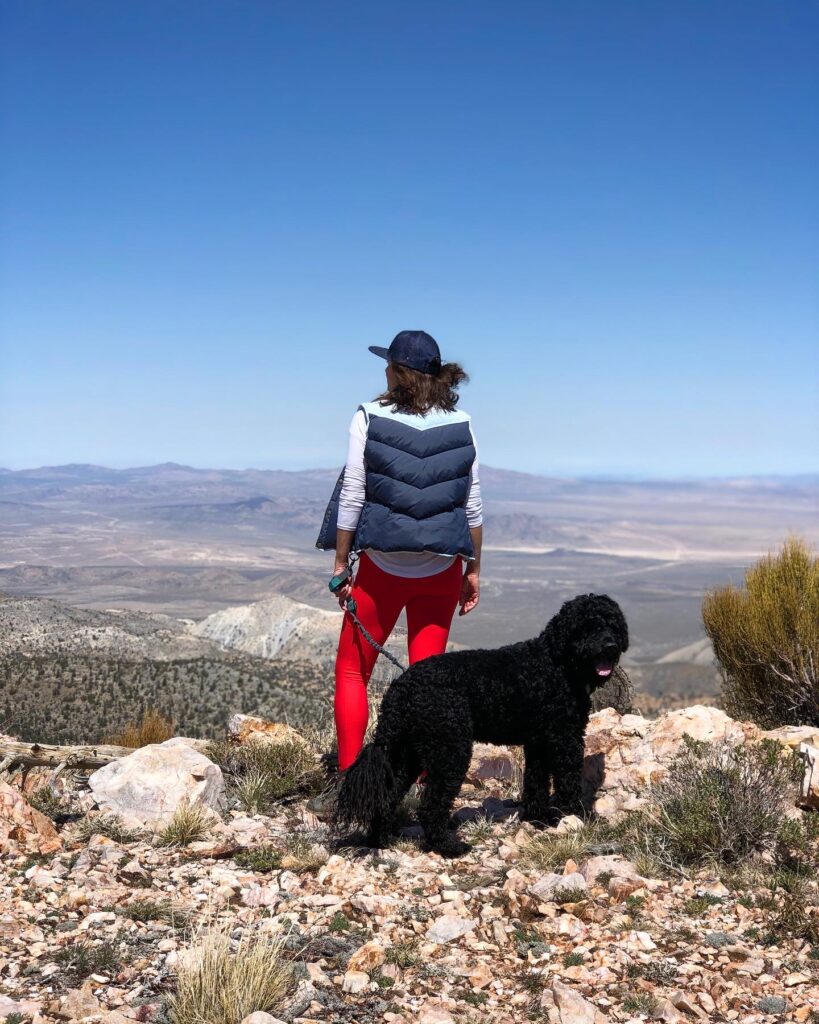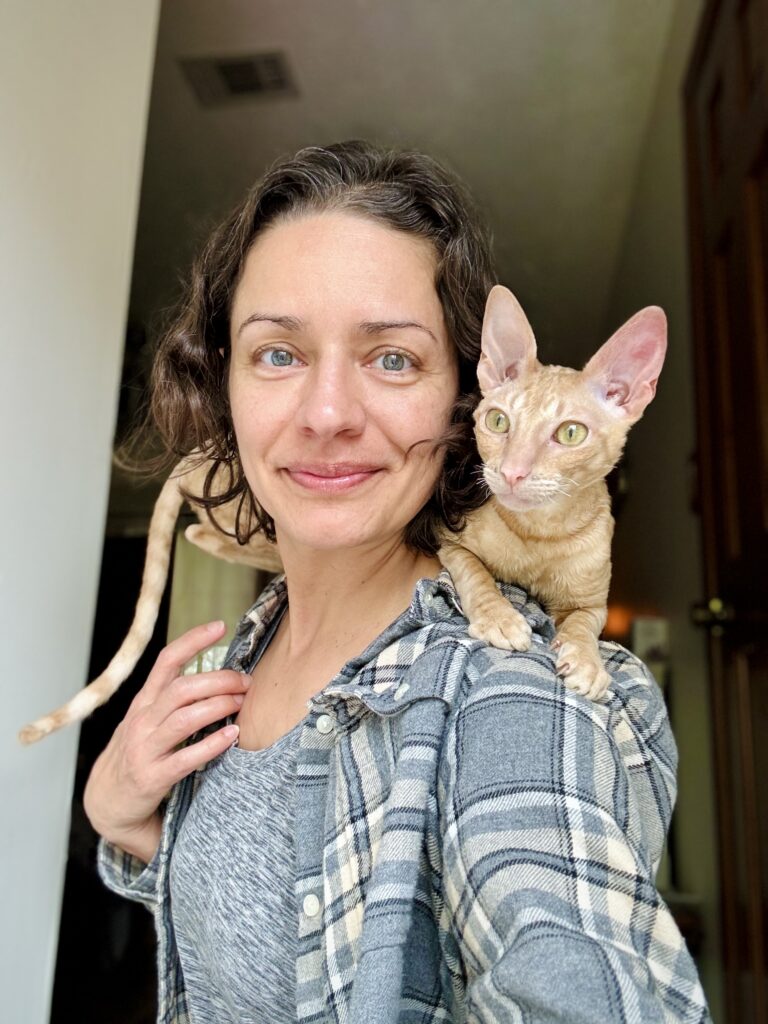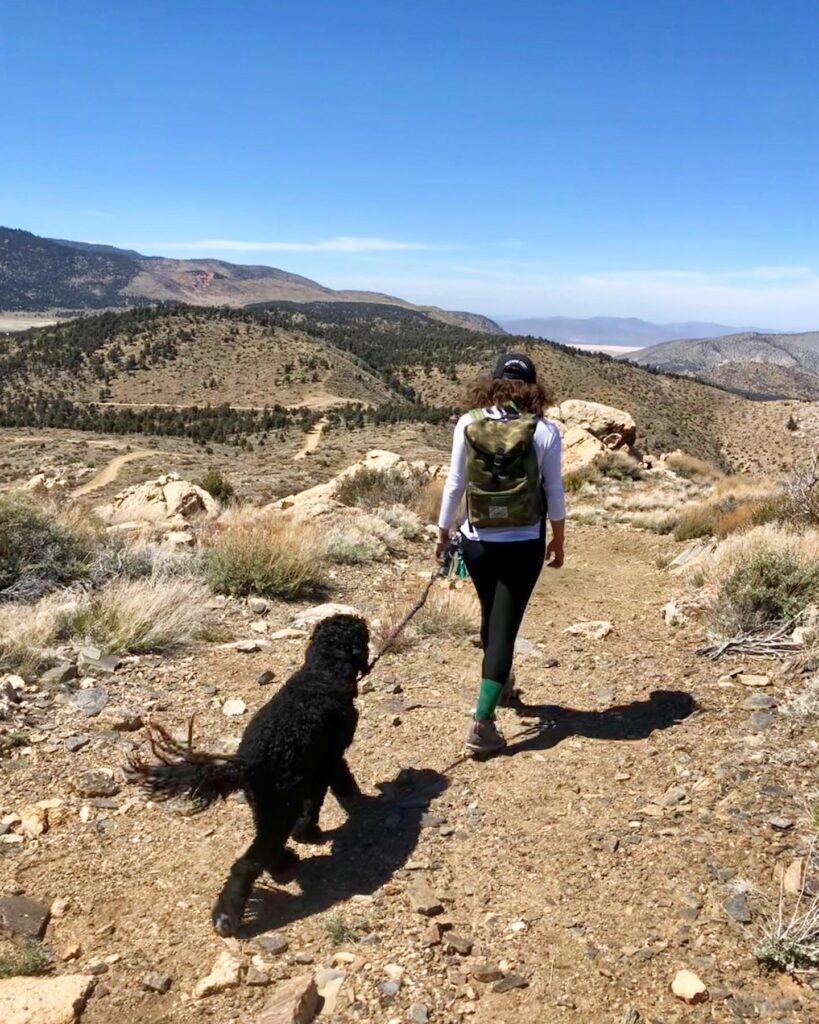The Courage to Stay Curious
When I first arrived in the United States as a teenager, I was armed with two suitcases, a Romanian accent, and one powerful tool that’s guided me ever since: curiosity.
Curiosity helped me adapt as an immigrant, to ask questions rather than make assumptions, to seek connection instead of isolation. It led me to explore unfamiliar foods, customs, and ideas—not as threats to who I was, but as opportunities to expand who I could become.
Curiosity cracked open the world for me. It made me brave.
It’s what allowed me to say yes to things that once terrified me—like rock climbing up sheer granite or deadlifting 225 pounds when my mind whispered, “That’s too much.” It helped me build friendships across cultures, religions, and generations. Even now, as I get older, my circle keeps growing—not shrinking—because I remain genuinely curious about people and what shapes them.
Curiosity has helped me evolve not just outwardly, but inwardly. It’s the foundation of my work in our community, with women, with youth, and with my own spirit. And it’s something I believe we desperately need more of—in our communities, our politics, our relationships, and in ourselves.
Let me give you two stories.
The first involves spiders. I used to be terrified of them. A childhood game of hide-and-seek turned into a scene from a horror movie when I ran through a nest of them—webs on my face, spiders clinging to my skin. For years, I recoiled in fear and disgust. But I didn’t kill them—I just stayed far, far away.
Then I moved to Georgia, where the spiders are as abundant as the sweet tea. They showed up in my garden, by my door, even in the corners of the kitchen. Avoidance was no longer an option. So, I got curious. I studied them. I watched them. I learned their names, their colors, their roles. I began to greet them. Now, Frances the Joro spider may guard my kitchen door, and a little jumping spider waves at me from the herbs. My fear turned into fascination, then into affection. And just like that, my world became richer—and a whole lot less mosquito-ridden.
The second story is about cherries. Recently, I was tutoring an almost-18-year-old for his ASVAB test when my husband brought me a bowl of cherries—Bing cherries, the kind that burst with flavor. I offered him some. He declined.
“I don’t eat cherries,” he said.
“You don’t like them?”
“I’ve never had one.”
He had never tasted a cherry. Not once.
I encouraged him to try one. Just one. But he refused. And it broke my heart—not because of the fruit, but because of what that moment represented. How often do we turn away from the unknown simply because it’s unfamiliar? How many flavors, people, ideas, experiences do we miss because fear—or indifference—closes the door that curiosity would swing wide open?
Children are naturally curious. They ask, they explore, they experiment. But somewhere along the way, adults teach them fear. We teach them to categorize, to shrink their world rather than expand it. We pass on our own discomfort with difference—whether it’s someone’s accent, their religion, the color of their skin, or the food they eat.
But curiosity is the antidote. It’s how we move beyond “us” and “them.” It’s how we stop reducing people to political labels or stereotypes. It’s how we understand why a cattle rancher in a small town might vote differently than we do. It doesn’t mean we always agree—but it means we start by listening instead of judging.
Curiosity is the root of innovation, of compassion, of growth. It’s how we evolve—individually and collectively. It’s how we challenge outdated ideas, reframe archaeological assumptions, and rediscover what it means to be “civilized.” After all, who decided that building in stone was more sophisticated than building in wood? The wooden churches of Maramureș, where my mother is from, are among the most beautiful structures I’ve ever seen. Their impermanence doesn’t diminish their worth.
So, let’s ask more questions. Let’s taste the unfamiliar fruit. Let’s listen to a new genre of music. Let’s greet the spider and see if she has something to teach us.
We only get one life. Let’s not live it inside the lines others drew for us.
Curiosity might not kill the cat—but it just might save the human.



You may also like...
Diddy's Legal Troubles & Racketeering Trial

Music mogul Sean 'Diddy' Combs was acquitted of sex trafficking and racketeering charges but convicted on transportation...
Thomas Partey Faces Rape & Sexual Assault Charges

Former Arsenal midfielder Thomas Partey has been formally charged with multiple counts of rape and sexual assault by UK ...
Nigeria Universities Changes Admission Policies

JAMB has clarified its admission policies, rectifying a student's status, reiterating the necessity of its Central Admis...
Ghana's Economic Reforms & Gold Sector Initiatives

Ghana is undertaking a comprehensive economic overhaul with President John Dramani Mahama's 24-Hour Economy and Accelera...
WAFCON 2024 African Women's Football Tournament

The 2024 Women's Africa Cup of Nations opened with thrilling matches, seeing Nigeria's Super Falcons secure a dominant 3...
Emergence & Dynamics of Nigeria's ADC Coalition

A new opposition coalition, led by the African Democratic Congress (ADC), is emerging to challenge President Bola Ahmed ...
Demise of Olubadan of Ibadanland
Oba Owolabi Olakulehin, the 43rd Olubadan of Ibadanland, has died at 90, concluding a life of distinguished service in t...
Death of Nigerian Goalkeeping Legend Peter Rufai

Nigerian football mourns the death of legendary Super Eagles goalkeeper Peter Rufai, who passed away at 61. Known as 'Do...




